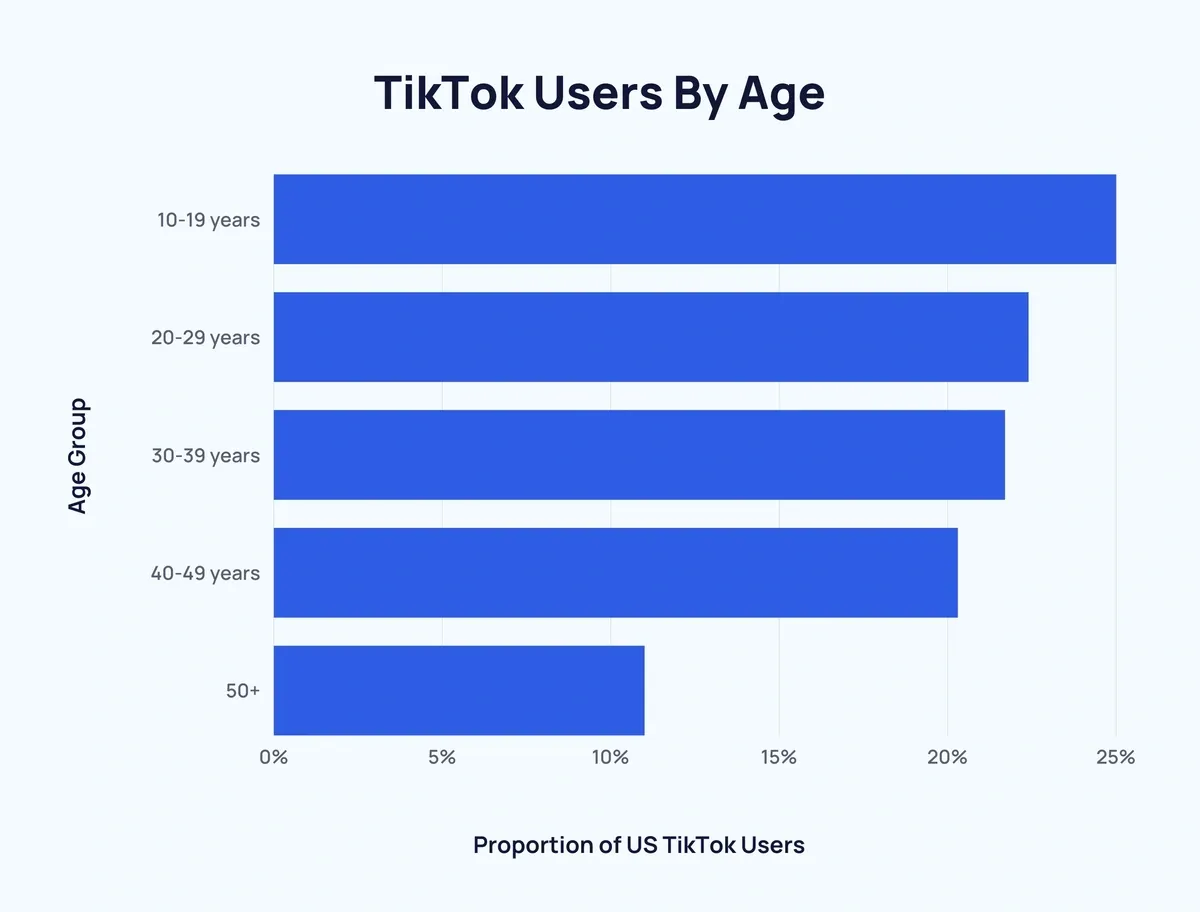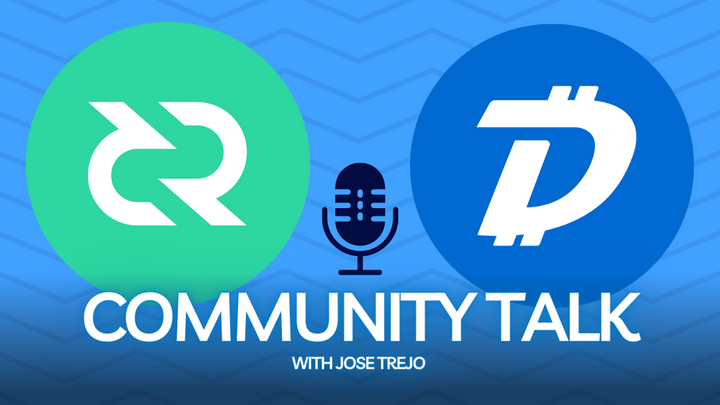Is TikTok genuinely a threat to user privacy and data security, or are there underlying motives behind the potential ban? How do TikTok's privacy policies compare against those of American social media companies, and what alternatives exist for users concerned about their privacy?
TikTok is a global phenomenon, which redefined the social media landscape with its unique video (mostly shorts) content platform. Originating from Beijing, China, under the control of the ByteDance company, TikTok launched in 2018 and quickly captured the screens of millions worldwide, especially the young generation, 47.4% of its users are 10–29 years old. With its addictive algorithm, TikTok has become a hub for entertainment, and viral trends, overcoming geographical, cultural, and linguistic barriers.
Its significant role in shaping digital culture, influencing consumer behaviour, and creating online communities has positioned it as maybe the most influential social media platform nowadays. However, this status has also placed TikTok under intense scrutiny by the American regulatory bodies, leading to recent legislative actions that could redefine its operational freedom in the U.S.

The United States took a significant step towards a potential ban of TikTok when the House of Representatives approved a bill on March 13th. This legislation demands that ByteDance, the Chinese company behind TikTok, must sell its stakes in the app or face expulsion from U.S. app stores. Numerous legislators in the House have expressed concerns that the app might enable the Chinese government to obtain user data and exert influence over Americans.
Is TikTok genuinely a threat to user privacy and data security, or are there underlying motives behind the potential ban? How do TikTok's privacy policies compare against those of American social media companies, and what alternatives exist for users concerned about their privacy? These questions are central to understanding the current landscape of social media and the concerns surrounding data privacy. Let's delve into them to better grasp the dangers of social media in modern digital privacy.
Why TikTok could be banned?
The act approved by the American Congress begins with the following sentences, that demonstrate its objective:
"To protect the national security of the United States from the threat posed by foreign adversary controlled applications, such as TikTok and any successor application or service and any other application or service developed or provided by ByteDance Ltd. or an entity under the control of ByteDance Ltd."
Republican and Democratic legislators, alongside intelligence agencies, are worried that ByteDance could be handing U.S. TikTok user's data to the Chinese government. Those worries are not in vain, since the U.S. has 170 million active TikTok users, and China's national security laws mandate companies to assist in national intelligence operations.
TikTok has denied those claims, suggesting it might help the Chinese intelligence operations. ByteDance states it has never shared U.S. user's data with Chinese authorities. Despite the suspicion, the U.S. government still has no proof that TikTok has shared such information with Chinese officials.
TikTok CEO's Testimony Before the U.S. Congress
The act still needs to be approved by the Senate to have real effects, but if it happens, ByteDance is left with two options: sell TikTok or face a ban on its operations. If it chooses to sell, the app could still function in the U.S., after the White House certifies that the app is no longer under the control of a foreign adversary. The legislation also stipulates that Byte Dance must give up control over TikTok's algorithm, known for being addictive and engaging.
Tiktok privacy issues
People use TikTok for several reasons, which include entertainment, following trends, learning new things, sharing personal experiences, expressing themselves artistically, and marketing or growing their personal or business brand. However, the platform also faces significant criticism for numerous privacy concerns.
TikTok's data collection practices involve collecting sensitive user information, often without explicit consent. This includes personal device details, browsing history, keystroke patterns, wireless connections, geolocation, personally identifiable information (PII), biometric data (such as facial and voice recognition), and the content of messages. You can read the platform's Privacy Policies here!
The app's privacy policy allows for extensive data analysis, raising concerns about user privacy and security, especially given the potential for this data to be accessed by the Chinese government due to legal obligations. Despite assurances that data is stored in the U.S. and Singapore, TikTok's connections to China-based infrastructure suggest that user data could be shared with Chinese authorities. The U.S. lacks stringent federal laws on data privacy, enabling TikTok to collect and utilize personal data with minimal regulation, contrasting with stronger protections in other regions like Europe. This situation has raised significant concern among the U.S. government and cybersecurity experts regarding the implications for privacy and national security.
However, the core of the possible ban in the U.S. extends beyond these concerns, revolving around safeguarding the United States' dominance in global technology. This dynamic unfolds against China's growing tech sector and escalating tensions, which some describe as a new Cold War. Key elements of this rivalry include competition for artificial intelligence superiority and conflicts over microchip manufacturing and the availability of cloud computing services.
How U.S. social media treats privacy
After that analysis, TikTok surely looks like a privacy nightmare to those users who are concerned about the security of their personal information and internet behaviour. But social media users shouldn't focus their worries only on TikTok, but also on other social media companies. Since the Snowden leaks, we know that the National Security Agency (NSA) has run surveillance programs through “partnerships” with major US tech and internet companies.

Major technology corporations such as Google, X, and Meta are also known for collecting personal information from their users. They say it's necessary to improve user experience on their platforms, but a big part of it is all about selling ads that hit people right where they live. The thing is, when they gather info about our race, ethnicity, who we love, or other personal stuff, it can lead us into some risky situations. Take Meta, for example. They recently had to come to terms with the U.S. Department of Justice because their algorithms were letting advertisers leave out certain racial groups from seeing important ads about housing, jobs, and banking. And let's not forget the $5 billion fine they got in 2018. The Federal Trade Commission found out they weren’t exactly being careful with user's data. It all blew up because of shady business with a British company called Cambridge Analytica. Meta's tried to fix some of these issues, but it just goes to show that collecting all this sensitive data can lead to some serious problems.
This revelation highlights that American social media giants, much like the Chinese company ByteDance, pose significant threats to user privacy. Despite originating from different countries, their approach to handling user data reveals bad similarities. Both are involved in controversies regarding the management of personal information and suspicious interactions with governmental bodies. This parallel underscores a global issue within the tech industry, where the boundaries of privacy are continually tested, often at the expense of the individual user.
There are safe options for social media?
In a social media centred world, it is very difficult for a person to live without them. Wanting to socialize is a natural human condition, but what do we do when we care about our data and privacy?
This question is complicated, but there is still hope! Various open-source, privacy-centric, and peer-to-peer solutions are available. This discussion explores these alternatives and the particular challenges they aim to solve.
Bison Relay
Bison Relay is the Decred project's new take on social media. It's a new platform that emphasizes free speech, privacy, and decentralization. It operates with an asynchronous client-server protocol that utilizes the Decred Lightning Network for micropayments. Every message sent with Bison Relay is encrypted!

This innovative social media integrates payments, messaging, and data security into a single platform. It's a software that supports functionalities similar to Facebook/Twitter, where users can post content, subscribe to user's posts, and comment. Let's go deeper into some other interesting perks of Bison Relay:
1-Free Speech and Free Association: Users can communicate freely without the fear of censorship or persecution, enjoying the benefits of encrypted messaging and metadata minimization. The platform collects only the minimum of information necessary to operate!
2-Encryption and Privacy: All messages are encrypted by the use of end-to-end encryption. This tool ensures that only the intended recipient can read the content.
3-Decentralization and Peer-to-Peer Network: Bison Relay does not rely on a centralized server for transmitting messages and handling user accounts. It's fundamentally a peer-to-peer encrypted content relay network. This minimizes the risk of surveillance.
Check out Bison Relay interface after its last update
In summary, Bison Relay offers the possibility of communicating without fear. It emphasizes user sovereignty, giving an encrypted and privacy-focused platform that integrates with the Decred cryptocurrency.
Mastodon
Mastodon is a social platform very similar to Twitter, but with a structure that emphasizes privacy, user control, and community governance. Instead of having a single, central server owned by a corporation, Mastodon is composed of several independent servers, each with its own rules, policies, and community focus, this system is called a "federated model".
This structure allows users to join groups that are aligned with their interests, values, and desired privacy levels. It's a customizable experience that enables advanced privacy settings, where you can adjust the level of privacy for each publication made.
Learn more about the Mastodon platform
Moving Forward
As some users become aware of the security and privacy implications of their online presence and data usage, alternatives like Bison Relay and Mastodon offer promising alternatives. Big companies such as ByteDance and Meta have been exposed as real privacy nightmares and a risk for anyone worried about their data.
The light at the end of the tunnel for social media may be the rise of privacy-focused and user-centred platforms. Regular folk still need more awareness about the dangers of data misusage and personal information leaks. The cypherpunk community must work on that learning process, spreading knowledge about the importance of internet privacy and data security. If the work is done the right way, we can head for a more decentralized and free future.






Comments ()